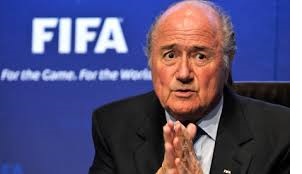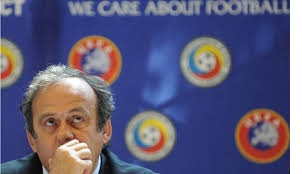It took only days for the de facto immunity of the Court of
Arbitration for Sport (CAS) awards from State court interference to collapse
like a house of cards on the grounds
of the public policy exception mandated under Article V(2)(b) of the New York Convention on the Recognition and
Enforcement of Foreign Arbitral Awards . On 15 January 2015, the
Munich Court of Appeals signalled an unprecedented turn in the
longstanding legal dispute between the German speed skater, Claudia Pechstein,
and the International Skating Union (ISU). It refused to recognise a CAS
arbitral award, confirming the validity of a doping ban, on the grounds that it
violated a core principle of German cartel law which forms part of the German public
policy. A few weeks before, namely on 30 December 2014, the Court of Appeal of Bremen held a CAS award, which ordered the German Club, SV Wilhelmshaven, to
pay ‘training compensation’, unenforceable for non-compliance with mandatory
European Union law and, thereby, for violation of German ordre public. More...
'Can't fight corruption with con tricks
They use the law to commit crime
And I dread, dread to think what the future
will bring
When we're living in gangster time'
The Specials - Gangsters
The pressing need for change
The
Parliamentary Assembly (PACE) of the Council of Europe (CoE), which is composed
of 318 MPs chosen from the national parliaments of the 47 CoE member states,
unanimously adopted a report entitled ‘the reform of
football’
on January 27, 2015. A draft resolution on the report will be debated during the
PACE April 2015 session and, interestingly, (only?) FIFA’s president Sepp
Blatter has been sent an invitation.
The PACE report
highlights the pressing need of reforming the governance
of football by FIFA and UEFA respectively. Accordingly, the report contains
some interesting recommendations to improve FIFA’s (e.g., Qatargate[1]) and
UEFA’s governance (e.g., gender representation). Unfortunately, it remains unclear
how the report’s recommendations will actually be implemented and enforced.
The report is a
welcomed secondary effect of the recent Qatargate directly involving former
FIFA officials such as Jack Warner, Chuck Blazer, and Mohamed Bin Hammam[2] and
highlighting the dramatic failures of FIFA’s governance in putting its house in
order. Thus, it is undeniably time to correct the governance of football by FIFA
and its confederate member UEFA – nolens
volens. The real question is how to do it.


Photograph:
Fabrice Coffrini/AFP/Getty Images Photograph:
Octav Ganea/AP
More...
Due
to the legitimate excitement over the recent Pechstein
ruling, many have overlooked a previous German decision
rendered in the Wilhelmshaven SV case
(the German press did report on the decision here
and here).
The few academic commentaries (see here
and here)
focused on the fact that the German Court had not recognized the res judicata effect of a CAS award.
Thus, it placed Germany at the spearhead of a mounting rebellion against the legitimacy
of the CAS and the validity of its awards. None of the commentators weighed in
on the substance of the decision, however. Contrary to the Court in Pechstein, the judges decided to evaluate
the compatibility of the FIFA rules on training compensations with the EU free
movement rights. To properly report on the decision and assess the threat it
may constitute for the FIFA training compensation system, we will first
summarize the facts of the case (I), briefly explicate the mode of functioning
of the FIFA training compensation system (II), and finally reconstruct the
reasoning of the Court on the compatibility of the FIFA rules with EU law
(III).More...
On 15
April 2014, the Cairo Economic Court (the “Court") issued a seminal
judgment declaring the broadcasting of a football match a sovereign act of State.[1]
Background
In Al-Jazeera
v. the Minister of Culture, Minister of Information, and the Chairman of the
Board of Directors of the Radio and Television Union, a case registered
under 819/5JY, the Al-Jazeera TV Network (the “Plaintiff” or “Al-Jazeera”)
sued the
Egyptian Radio and Television Union (“ERTU” or the “Union”) et
al. (collectively, the “Respondents”) seeking compensation for
material and moral damages amounting to three (3) million USD, in addition to
interest, for their alleged breach of the Plaintiff’s exclusive right to
broadcast a World Cup-qualification match in Egypt. Al-Jazeera obtained such
exclusive right through an agreement it signed with Sportfive, a sports marketing company that had
acquired the
right to broadcast Confederation of African Football (“CAF”) World
Cup-qualification matches.
ERTU
reportedly broadcasted the much-anticipated match between Egypt and Ghana live on
15 October 2013 without obtaining Al-Jazeera’s written approval, in violation
of the Plaintiff’s intellectual property rights.
More...
The selling of media rights is currently a hot
topic in European football. Last week, the English Premier League cashed in
around 7 billion Euros for the sale of its live domestic media rights (2016 to
2019) – once again a 70 percent increase in comparison to the previous tender. This
means that even the bottom club in the Premier League will receive
approximately €130 million while the champions can expect well over €200
million per season.
The Premier League’s new deal has already led
the President of the Spanish National Professional Football League (LNFP),
Javier Tebas, to express his concerns that this could see La Liga lose its position as one of Europe’s leading leagues. He reiterated
that establishing a centralised sales model in Spain is of utmost importance,
if not long overdue.
Concrete plans to reintroduce a system of joint
selling for the media rights of the Primera
División, Segunda División A, and la
Copa del Rey by means of a Royal Decree were already announced two years
ago. The road has surely been long and bumpy. The draft Decree is finally on
the table, but now it misses political approval. All the parties involved are
blaming each other for the current failure: the LNFP blames the Sport
Governmental Council for Sport (CSD) for not taking the lead; the Spanish Football
Federation (RFEF) is arguing that the Federation and non-professional
football entities should receive more money and that it should have a stronger
say in the matter in accordance with the FIFA Statutes; and there are widespread rumours that the two big earners, Real Madrid and FC Barcelona, are actively
lobbying to prevent the Royal Decree of actually being adopted.
To keep the soap opera drama flowing, on 30 December 2014, FASFE (an
organisation consisting of groups of fans, club members, and minority
shareholders of several Spanish professional football clubs) and the
International Soccer Centre (a movement that aims to obtain more balanced and
transparent football and basketball competitions in Spain) filed an antitrust complaint with the European Commission against the LNFP. They
argue that the current system of individual selling of LNFP media rights, with
unequal shares of revenue widening the gap between clubs, violates EU
competition law.

Source:http://www.gopixpic.com/600/buscar%C3%A1n-el-amor-verdadero-nueva-novela-de-televisa/http:%7C%7Cassets*zocalo*com*mx%7Cuploads%7Carticles%7C5%7C134666912427*jpg/
More...
Class actions are among the most
powerful legal tools available in the US to enforce competition rules. With more
than 75 years of experience, the American system offers valuable lessons about
the benefits and drawbacks of class actions for private enforcement in
competition law. Once believed of
as only a US phenomenon, class actions are slowly becoming reality in the EU. After the
adoption of the Directive on damages
actions in November 2014, the legislative initiative in collective redress
(which could prescribe a form of class actions) is expected in 2017.[1]
Some
pro-active Member States have already taken steps to introduce class actions in
some fashion, like, for example, Germany.
What
is a class action? It is a lawsuit that allows
many similar legal
claims with a common interest to be bundled into a single
court action. Class actions facilitate
access to justice for potential claimants, strengthen the negotiating power and
contribute
to the efficient administration of justice. This legal mechanism
ensures a possibility to claim cessation of
illegal behavior (injunctive relief) or to claim compensation for damage
suffered (compensatory relief). More...
In
autumn 2011, the Finnish cross-country skier Juha Lalluka, known as a “lone-wolf” because of his training habit, showed an
adverse analytical finding with regard to human growth hormone (hGH). The timing
was ideal. As the FINADA Supervisory Body in view of the A and B positive
samples initiated disciplinary proceedings against Lalluka for violation of
anti-doping rules, the Veerpalu case was pending before the
CAS. At the athlete’s request, the Supervisory Board postponed the proceedings until
the CAS rendered the award in the Veerpalu
case. Indeed, on 25 March 2013, the CAS
shook the anti-doping order: it cleared Andrus Veerpalu of an anti-doping rule
violation for recombinant hGH (rhGH) on the grounds that the decision limits
set by WADA to define the ratio
beyond which the laboratories should report the presence of rhGH had not proven
scientifically reliable.
The
Veerpalu precedent has become a
rallying flag for athletes suspected of use of hGH and confirmed some concerns raised about the application of the hGH test. Not surprisingly, Sinkewitz and Lallukka followed
the road that Veerpalu paved and sought to overturn their doping ban by
alleging the scientific unreliability of the hGH decisions limits. Without
success, however. With the full text of the CAS award on the Lallukka case released
a few weeks ago[1]
and the new rules of the 2015 WADA Code coming into force, we grasp the opportunity to outline the ambiguous approach of CAS on
the validity of the hGH test. In short: Should the Veerpalu case and its claim that
doping sanctions should rely on scientifically well founded assessments be
considered as a fundamental precedent or as a mere exception? More...
There has been a lot
of Commission interest in potential state aid to professional football
clubs in various Member States. The huge
sums of money involved are arguably an important factor in this interest and
conversely, is perhaps the reason why state aid in rugby union is not such a
concern. But whilst the sums of money
may pale into comparison to those of professional football, the implications
for the sport are potentially no less serious.
At the end of the
2012/2013 season, Biarritz Olympique (Biarritz) were relegated from the elite
of French Rugby Union, the Top 14 to the Pro D2. By the skin of their teeth, and as a result
of an injection of cash from the local
council (which amounted
to 400,000€), they were spared administrative relegation to the amateur league
below, the Fédérale 1, which would have occurred as a result of the financial
state of the club.More...
Introduction
The year 2015 promises to be crucial, and possibly revolutionary, for
State aid in football. The European Commission is taking its time in concluding
its formal investigations into alleged State aid granted to five Dutch clubs
and several Spanish clubs, including Valencia CF and Real Madrid, but the final decisions are due for 2015.
A few months ago, the Commission also received a set of fresh State aid complaints originating from the EU’s newest Member State
Croatia. The complaints were launched by a group of minority shareholders of
the Croatian football club Hajduk Split, who call themselves Naš Hajduk. According to Naš Hajduk, Hajduk Split’s eternal rival, GNK Dinamo
Zagreb, has received more than 30 million Euros in unlawful aid by the city of
Zagreb since 2006.More...
Media reports and interested stakeholders often suggest that
certain types of sports bets would significantly increase the risks of match
fixing occurring. These concerns also surface in policy discussions at both the national and European level.
Frequently calls are made to prohibit the supply of “risky” sports bets as a
means to preserve the integrity of sports competitions.
Questions about the appropriateness of imposing such
limitations on the regulated sports betting, however, still linger. The
lack of access to systematic empirical evidence on betting-related match fixing
has so far limited the capacity of academic research to make a proper risk
assessment of certain types of sports bets.
The ASSER International Sports Law Centre has conducted the first-ever study that assesses the integrity risks of certain sports bets on the
basis of quantitative empirical evidence.
We uniquely obtained access to key statistics from
Sportradar’s Fraud Detection System (FDS). A five-year dataset of football
matches worldwide, which the FDS identified as likely to have been targeted by
match fixers, enabled us to observe patterns and correlations with certain
types of sports bets. In addition, representative samples of football bets
placed with sports betting operator Betfair were collected and analysed.
The results presented in this report, which challenge several claims
about the alleged risks generated by certain types of sports bets, hope to
inform policy makers about the cost-effectiveness of imposing limits on the
regulated sports betting offer.More...